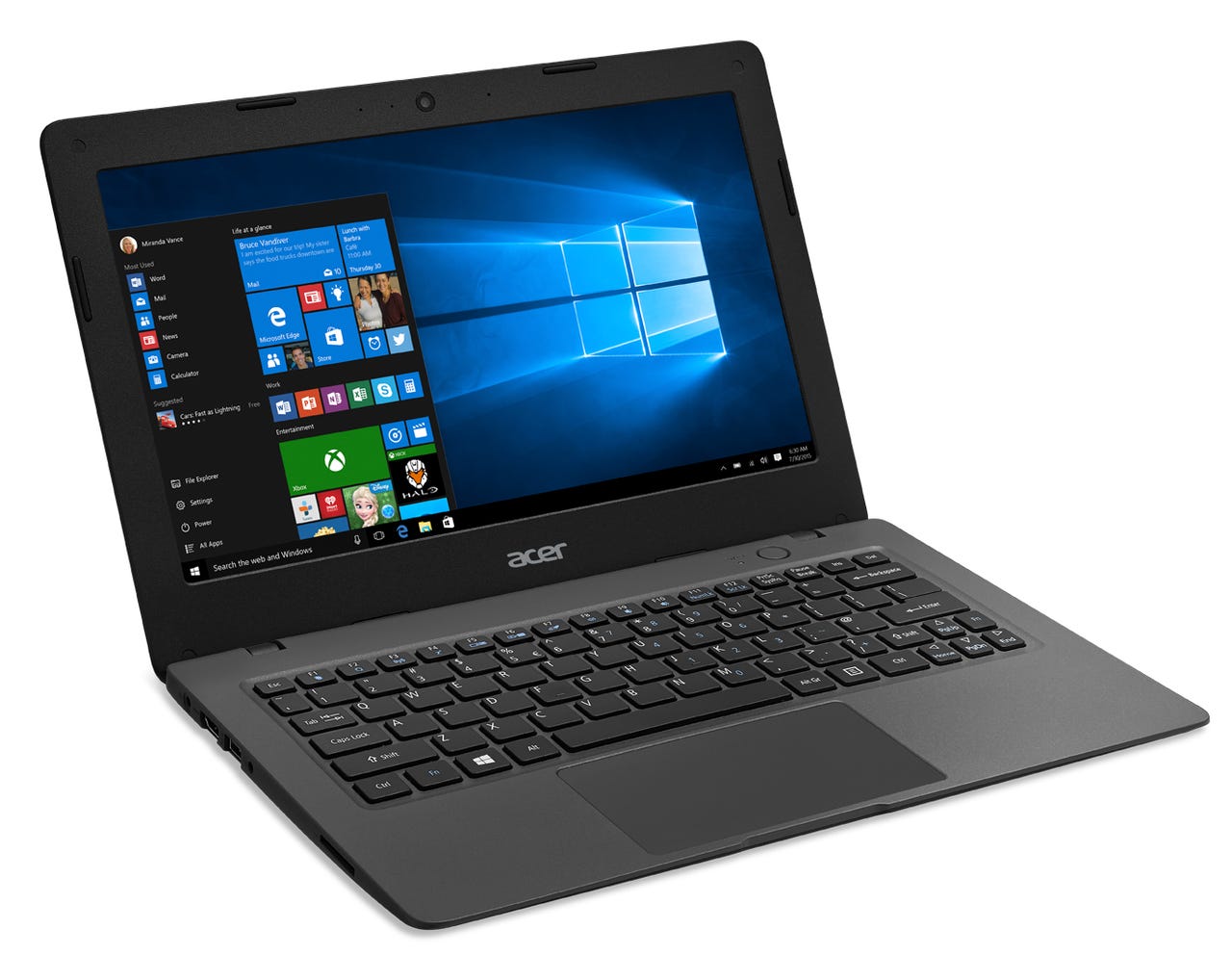No, a Windows 10 Cloudbook isn't a Chromebook killer

After hearing months about low-cost Windows laptops called Cloudbooks, the first models are arriving. Acer has a $170 laptop available with Windows 10 but it's not really new; instead, it's the same hardware the company uses for its Chromebook, only it has Windows 10 installed instead of Google's Chrome OS.

It's easy to think on the surface that Cloudbooks are "Chromebook killers." Except they're not.
Perhaps the best way to explain why is my tweet from yesterday: "Calling Windows 10 Cloudbooks Chromebook Killers is like calling a VW Bus a Rally Car Killer."
Featured
Simply put, despite the hardware similarities, these are very different products that meet different needs. There are pros and cons to each, of course: Which one meets your own personal needs better is the preferred option.
So why might people buy a Chromebook to begin with? The first answer that often comes to mind is the price: Most Chromebooks are in the $200 to $300 range. And starting at $170, it's easy to think that the new Acer Cloudbook has the advantage. There's a problem with that line of reasoning though.
There have been low-cost Windows laptops on the market for quite some time. Take, for example, the $229 HP Stream 13 I bought with Windows 8.1 back in December. I actually got a holiday deal for $199, which included a year of Microsoft Office and 1 TB of OneDrive storage. For the same price, I could have bought the smaller HP Stream 11.
If you can buy a full Windows laptop for less than the cost of most Chromebooks and price was the only factor, people wouldn't buy Chromebooks, would they?
I've long posited that it's not just the price -- or the price at all for some people -- but it's the simplicity of a Chromebook. Yes, they can do less than a Windows laptop but why buy something with features that you may not want or need?
I posed this question on Google+ to get a broader perspective and the simplicity factor came up time and again, along with thoughts on security and usability.
Here are a few of the several dozen responses:
- I think the idea of getting rid of Windows can be a key part of it (which is the case for me personally and for a lot of other folks I talk to) -- having a simple experience that "just works" and doesn't involve all the old-school computing hassles like drivers, compatibility errors, virus worries and the need to buy and run anti-virus software, systems slowing down over time, annoying manual OS and app updates, etc etc.
- Chromebooks may seem to be about inexpensive machines, but I've found that they are much more transparent machines, by which I mean that I don't have to think about the machine to get my work done. To borrow a phrase, it just works.
- I use my Chromebook more than my Windows PC and it's safe to say that while price is a factor with Chromebooks, it's Chrome OS that keeps me on board. The fast boot times, seamless updates and the plain simplicity of Chrome OS is just great.
- I migrated my father 2 years ago from Windows to a Chromebook and it was the best decision ever. Just search for "my father goes Chrome". The decision was based mainly on simplicity rather than price. It just works!
- I was sick of windows. The constant updates, the long boot times, the unnecessary complexity of everything. I do everything in the cloud, both personally and at work so have moved completely away from windows, been only using chromebooks for the last year.
- It is absolutely about simplicity and 'appliance computing'. The simple fact is this - if ChromeOS does what you need than it is absolutely a better operating system than Windows. It's not even close.I have a good chunk of several days setting up a new Win10 box for multiple members of a family - most of them older and not especially tech literate or savvy. Meanwhile I've spent about 10 minutes total setting up or maintaining both my own Chromebook over the last 18 months, and also another Chromebook for my sister - who again is not very tech literate/savvy.
Granted, for every happy Chromebook user, you can probably find 100 happy Windows users. Again, I'm not saying Chromebooks are the best solution for everyone, because they're not.
Instead, the point is that taking a Chromebook computer and installing Windows 10 -- exactly what Acer is doing with the Cloudbook -- won't "kill" the former product, even at a lower price.
That's because the two products are aimed at different use-cases with varying experiences.
If you want or need Windows, you should get Windows. If Windows has too many unnecessary features that you won't use, why buy it when you can have a lighter and possibly better computing experience that meets your needs?
Sometimes it's not what you get with a product, but what you don't get, that's the compelling factor.